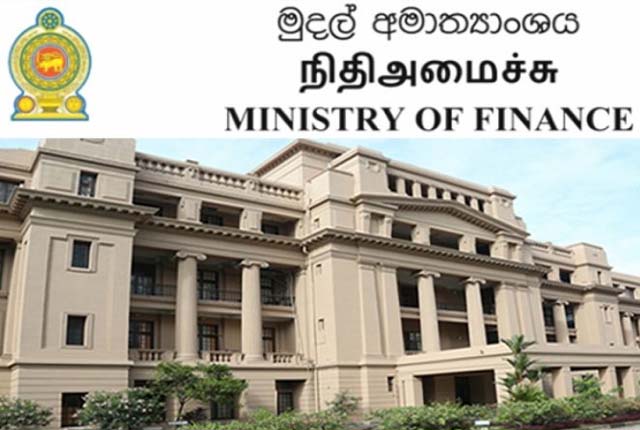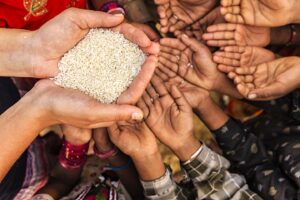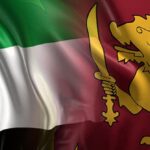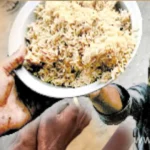
Sri Lanka Completes Sovereign Bond Rework paving way for Economic Recovery
- CNL Reporter
- December 14, 2024
- Weekly Economic Review
- Sri Lanka Completes Sovereign Bond Rework paving way for Economic Recovery
- 0 Comments
Weekly Economic Review
Sri Lanka has made substantial progress in its effort to recover from the economic turmoil triggered by its sovereign debt default in May 2022.
The Finance Ministry recently announced an “extremely high” participation rate in a critical debt exchange offer, aimed at restructuring $12.5 billion of defaulted sovereign bonds.
This landmark initiative, expected to result in the exchange of 98% of the bonds, marks a major step in stabilizing the country’s economy and rebuilding investor confidence.
President Anura Kumara Dissanayake welcomed the development, expressing optimism for Sri Lanka’s economic future. “We are very pleased to see this vote of confidence from our international and local bondholders,” he stated.
“The past few years have been challenging for the Sri Lankan population, but our collective efforts are now paying off. This debt exchange, a result of two years of intense negotiations, will deliver substantial relief to Sri Lanka.”
Details of the Debt Exchange
The debt restructuring process has been described as one of the most complex in recent history. According to Treasury Secretary Mahinda Siriwardana, the restructuring will provide Sri Lanka with significant debt relief, offering a foundation for economic recovery and growth. He emphasized the importance of using this relief prudently to rebuild fiscal and external buffers.
The exchange involves a 27% haircut on the bonds, reducing their net present value (NPV) by 40.3%.
The restructuring also includes innovative financial instruments such as GDP-linked and governance-linked bonds, designed to tie payments to the country’s economic performance and governance reforms.
Major creditors, including global investment giants BlackRock and Amundi, have supported the initiative, signaling confidence in the restructuring process.
The Finance Ministry has encouraged bondholders to participate in the exchange, which is open until December 12, 2024.
The restructuring is expected to reduce Sri Lanka’s debt service payments by $9.5 billion over the next four years, during the International Monetary Fund (IMF) program period. Interest rates on the new bonds have been adjusted to a range of 3.5% to 5.5% for the next eight years, with higher rates from 2033 onward. Principal repayments will commence in 2029 and extend to 2036.
Collaboration with the IMF and Creditors
Sri Lanka’s debt restructuring aligns with the IMF’s program, ensuring comparable treatment for official creditors and bondholders. Peter Breuer, the IMF’s Senior Mission Chief for Sri Lanka, noted that the restructuring puts the country on a sustainable debt trajectory. The next steps include finalizing bilateral agreements and fully implementing the terms of these agreements to restore fiscal stability.
The deal also incorporates commitments from China, one of Sri Lanka’s largest creditors, contributing to a combined debt relief of over $17 billion in NPV terms. This comprehensive package is expected to ease the country’s economic burden and foster long-term recovery.
Stock Market Optimism amid Economic Reforms
The election of President Dissanayake has also spurred optimism in the Colombo Stock Exchange (CSE). Since his inauguration, the market has experienced a surge, with its capitalization increasing by Rs. 1 trillion. The benchmark All Share Price Index (ASPI) recently crossed the 14,000-point mark for the first time in history, reflecting growing investor confidence.
Analysts attribute this positive trend to a combination of factors, including lower interest rates, impressive corporate earnings, and progress in the debt restructuring process. Some observers credit Dissanayake’s leadership for the renewed enthusiasm, while others emphasize structural factors such as favorable monetary policies and economic reforms.
Addressing Food Security and Corruption Challenges

Despite the progress, Sri Lanka continues to face significant challenges, particularly in food security and corruption.
The government has launched initiatives to ensure food and nutrition safety, aiming to provide affordable and sufficient food for all citizens. However, critics argue that high import taxes on essential goods like rice and maize exacerbate food insecurity, particularly for low-income families.
For instance, Sri Lanka imposes a tax of Rs. 65,000 per tonne on imported rice, leading to domestic prices that are 50% higher than global averages. These policies, rooted in economic nationalism and self-sufficiency ideology, have drawn criticism for undermining the food freedoms of the poor.
Corruption in public procurement remains another major concern. According to Verité Research, the country loses approximately 1% of its GDP annually due to inflated costs in government contracts.
The lack of transparency in tender processes has allowed corruption to thrive, with only a small fraction of public authorities disclosing complete and up-to-date tender information. The think tank has called for stricter enforcement of the Right to Information Act to enhance accountability and curb corruption.
GDP-Linked Bonds: A Path to Sustainable Growth

One innovative aspect of Sri Lanka’s debt restructuring is the introduction of GDP-linked bonds. These bonds adjust repayment obligations based on the country’s economic performance.
If the economy outperforms IMF projections, bondholders receive higher payments; if it underperforms, the payments are reduced. This mechanism provides flexibility for the government while incentivizing economic growth.
The success of this initiative depends on effective governance and the implementation of structural reforms. The government has emphasized its commitment to fighting corruption, promoting inclusive growth, and fostering investor confidence. These measures are crucial for ensuring the long-term sustainability of Sri Lanka’s economic recovery.
The Road Ahead
Sri Lanka’s journey toward economic stability is far from over. While the debt exchange offers much-needed relief, the country must address structural challenges, including high food prices, corruption, and governance inefficiencies. The government’s ability to implement reforms and maintain transparency will be critical in sustaining the current momentum.
At the same time, the positive developments in the stock market and the successful conclusion of the debt restructuring process signal a turning point for Sri Lanka. With continued support from international creditors and institutions, the country has a unique opportunity to rebuild its economy on a more sustainable and equitable foundation.
In the words of President Dissanayake, “Our collective efforts are paying off.” The coming years will determine whether these efforts can translate into lasting prosperity for the people of Sri Lanka.

